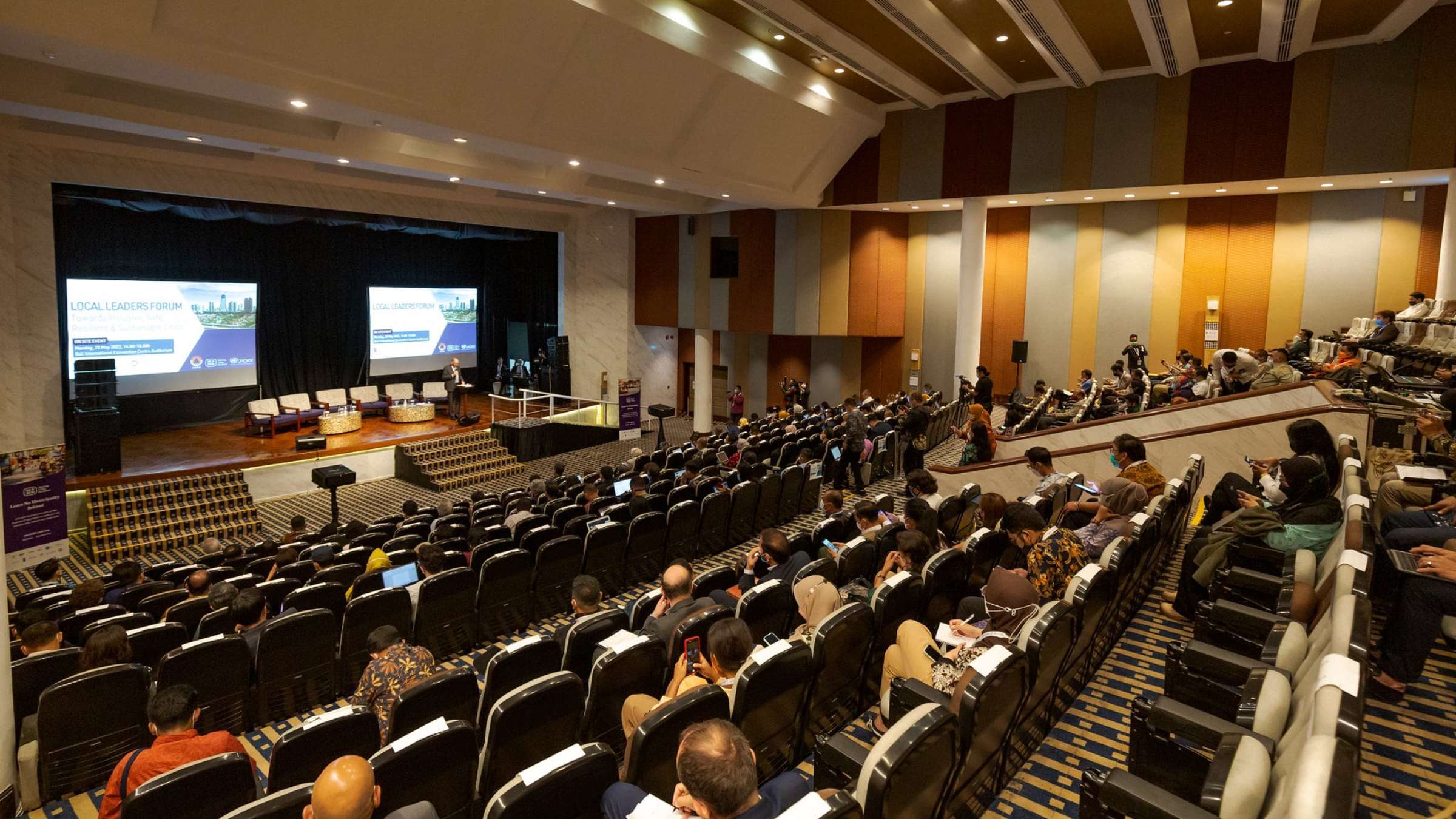A thousand ways local leaders are standing up to disaster risks: Urban resilience leaders think globally and act locally at Bali forum

Local governments play an essential role in disaster risk reduction (DRR) and building resilience. At UNDRR’s 2022 Global Platform in Bali, local leaders from across the globe joined a productive discussion on important issues around disaster resilience at local level.
Participants at the Local Leaders Forum discussed how the Sendai Framework supports local governments in making progress against the Sustainable Development Goals: poverty (SDG 1), health and wellbeing (SDG 3), sustainable cities and communities (SDG 11), and climate action (SDG 13).
UNDRR’s Making Cities Resilient (MCR2030) initiative – a global network of local governments which currently covers more than 360 million people – is a catalyst for local action to implement the Sendai framework.
Local leaders from MCR2030 Resilience Hubs – local administrations recognised for showing leadership in DRR and resilience initiatives – in the UK, Italy, Mexico, Portugal and South Korea joined a panel discussion on how they have used partnerships and peer-to-peer support to strengthen disaster resilience.
“Being a Resilience Hub offers one an opportunity to collaborate on the most pressing challenges of our times.”
A series of IGNITE presentations explored aspects of locally led DRR: strengthening national-local coordination on disaster resilience (Seyedmasoud Hosseini, mayor of Hamedan City, Iran); accessing finance (Mr Fakri Karim, team leader of the UN Capital Development Fund (UNCDF)-Smart Green ASEAN City Programme); and partnerships between local administrations and the private sector. (Ms Kazuko Kori, mayor of Sendai City, Japan). Speakers emphasised the importance of learning from past experiences and sharing insights.
“As one of the participating cities of MCR2030, we will proceed with sharing our efforts and learning from other regions’ initiatives."
Time and resource investments
Special Representative of the UN Secretary-General for Disaster Risk Reduction and head of UNDRR Ms. Mami Mizutori stressed that local governments need to invest time and resources in order to understand the risks their cities face so that they can take the necessary action to build resilience.
“This is why UNDRR, along with our partners, launched Making Cities Resilient 2030,” she said.
Mutual support is a central pillar of MCR2030, and Ms Mizutori urged the forum participants to encourage other local leaders to follow their example, to encourage their national governments to prioritize urban resilience programmes, to work with private sector partners to devolop technical services, and to advocate for greater financial investment in DRR and resilience.
“Please also note that UNDRR’s online Disaster Resilience Scorecard is now available to help in these efforts,” she reminded the forum.
Ms Mizutori acknowledged the Indonesian hosts, and local leadership in Bali, for their commitment to disaster risk reduction.
“Under the Governor’s leadership and with the support from the national level of BNPB and MCR2030 partners, we believe Bali province will set an inspiring example to other municipalities in Asia Pacific and the wider world.”
One thousand cities – celebrating Pangsha, Bangladesh
The Forum also provided an opportunity for MCR2030 to celebrate its 1,000th member – the Bangladeshi municipality of Pangsha – and Ms. Mizutori congratulated local leadership on their commitment, as well the country as a whole for embracing DRR at national and local levels.
“The support of the Municipal Association of Bangladesh has been vital to this achievement, and I would like to sincerely thank you for your support. As a result, of this sign up MCR2030 reached the milestone of 1,000 local governments who have joined our global collaboration. “
